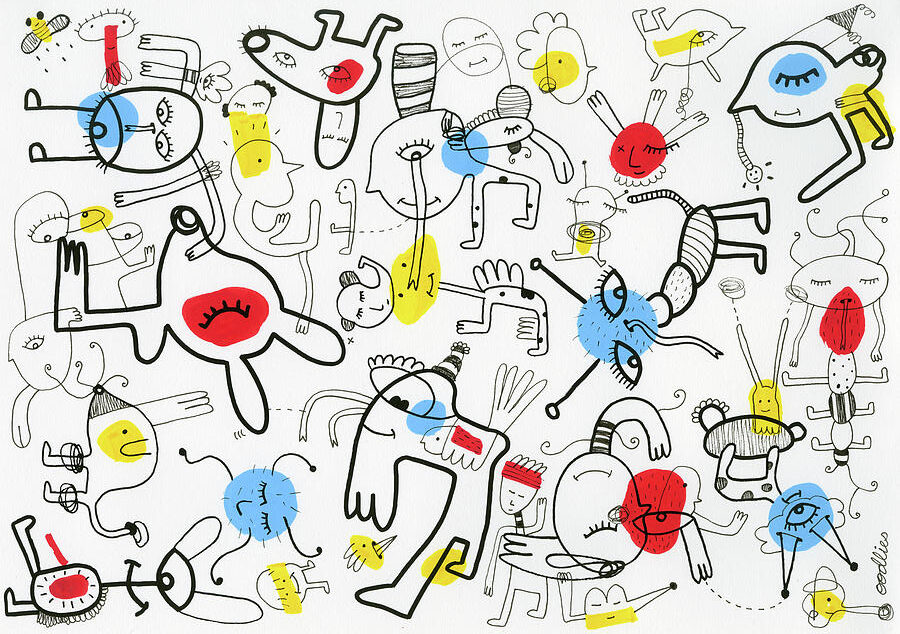Two Stars and a Wish
Nothing more.
This was the strategy of my writing mentor (and Poet Laureate), Baron Wormser, when it came to commenting on fellow MFA students’ pieces.
Say two things you really like and why. Then add in a wish for what you think might be an interesting direction to take the writing. Nothing more. Period.
No, “and I think you should really lose that bit about crying in your soup because it’s cliché, sentimental and kind of pathetic.” Or “falling in love with Jesus is a little creepy to some people. Maybe you could just like him.”
It communicated what WAS working.
And by non-threatening default, also what wasn’t.
It pre-empted defensiveness, encouraged confidence and provided inspiration regarding the revisionary process, which can otherwise be a rather daunting task. Forget writing. It seems like an excellent life strategy.
We are constantly revising our daily plans, our child-raising strategies, our business goals, priorities, exercise/diet regime, work/ life balance. You name it: we are revising, retooling, repositioning, readjusting it– in small and big ways.
But not necessarily by focusing on what IS working.
So why is it SO hard to focus on THAT?
It’s strange really because I know first hand when I focus on my ability to feel calm and loving, I feel it more. I exercise more. I eat better. I don’t gain weight. And I am fun to be around. Why?
Because I am starting from a position of strength.
When I focus on my need to be less rushed, less tense, less chocolate obsessed and less relaxed about my workouts, I feel stressed and irritable. And I am not a complete joy to be around. Why?
Because I am beginning from a position of incompetent weakness.
It’s not rocket science.
A pair of stars beats a bunch of wormholes
Every time. In every situation. 100% of the time.
So why, oh why, oh why, is it so hard to believe that by focusing on the good we will not somehow be swallowed up by the lurking list of bad?
I think it’s because we are taught to problem-solve and trouble-shoot from the time we are little. The focus is never on solution-evolve or answer-advance. We aren’t taught how to make the good better.
We are taught to work hard on what isn’t working in order to fix it.
Quick example: Last night Finn got dropped off from band. He did not have his drum sticks. For the THIRD week in a row.
The first time, I said, “You have to remember them, or we aren’t going to have any left at home for you to practice with, okay honey. It’s important. Tell you what, extra time on the I-pad of you remember next week.”
The second time I think it went more like, “Again? Seriously? Finn, you HAVE to remember them. Please! No I-pad next week if you forget.”
And last night, in rare parenting form, “You are kidding, right? You left them again? That was your last pair. How can it be that difficult to remember?”
And therein lies the crux of the problem.
It is not about reward or punishment, sweetness or sarcasm, although there are clearly better approaches than adult bratty-ness.
They are merely tactics.
The problem, I’m coming to realize, albeit slowly, is that my objective is wrong.
I am a results-driven person. The child returns with the drumsticks. Success. The child comes home empty-handed. Not a success.
But a rather radical thought occurred to me. What if it isn’t actually about the drumsticks at all? Hmm.
What if the goal is creating a confident, competent, happy child?
And every problem/ issue/ is actually a challenge/ opportunity with the same exact goal? Reading issues? Not about multi-syllabic words. Impulsivity problems? Not about flinging peas across the cafeteria.
If the goal is not about stopping bad behavior, then everything shifts. Just a little. But it’s a big little.
“You are such an amazing drummer and I love listening to you practice in the morning with dad and Leo. I just want to make sure you have what you need to kick some Aerosmith butt!”
What if we took the two stars and a wish approach?
It inspired me to be a better writer. Who knows? Maybe it inspires a drumstick homecoming.





